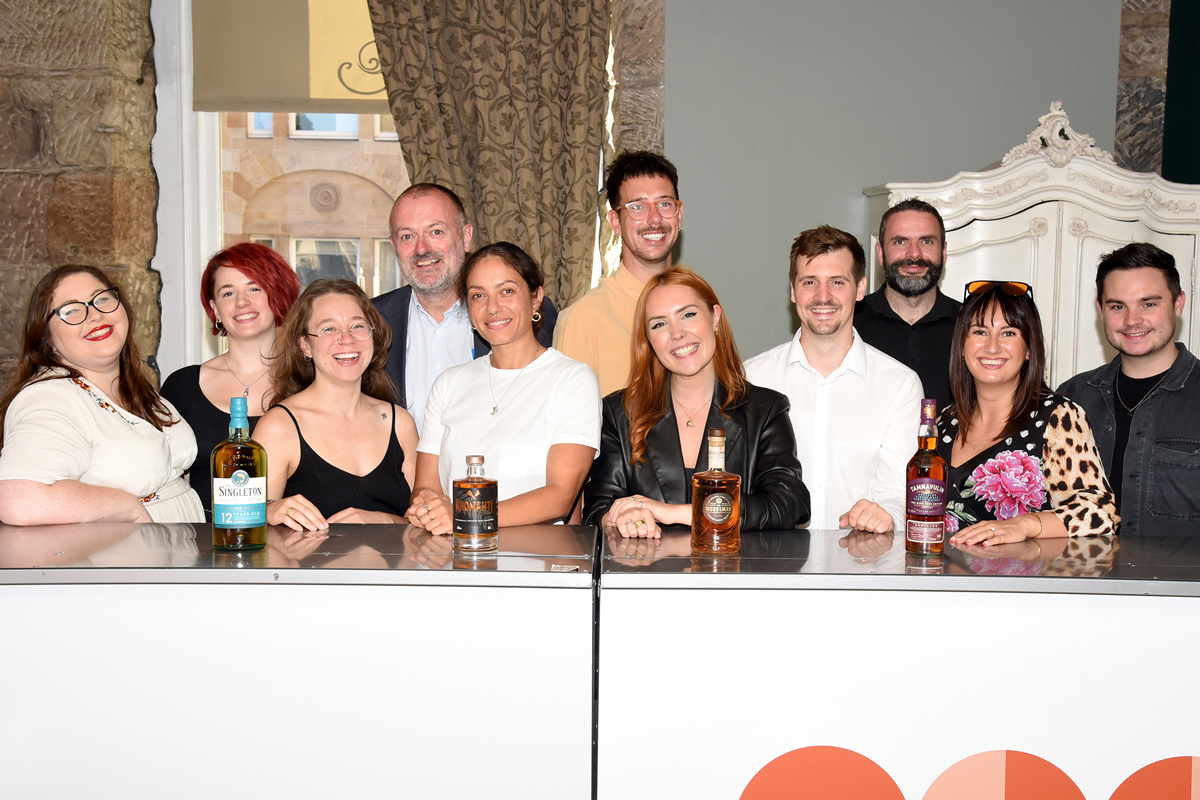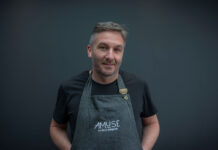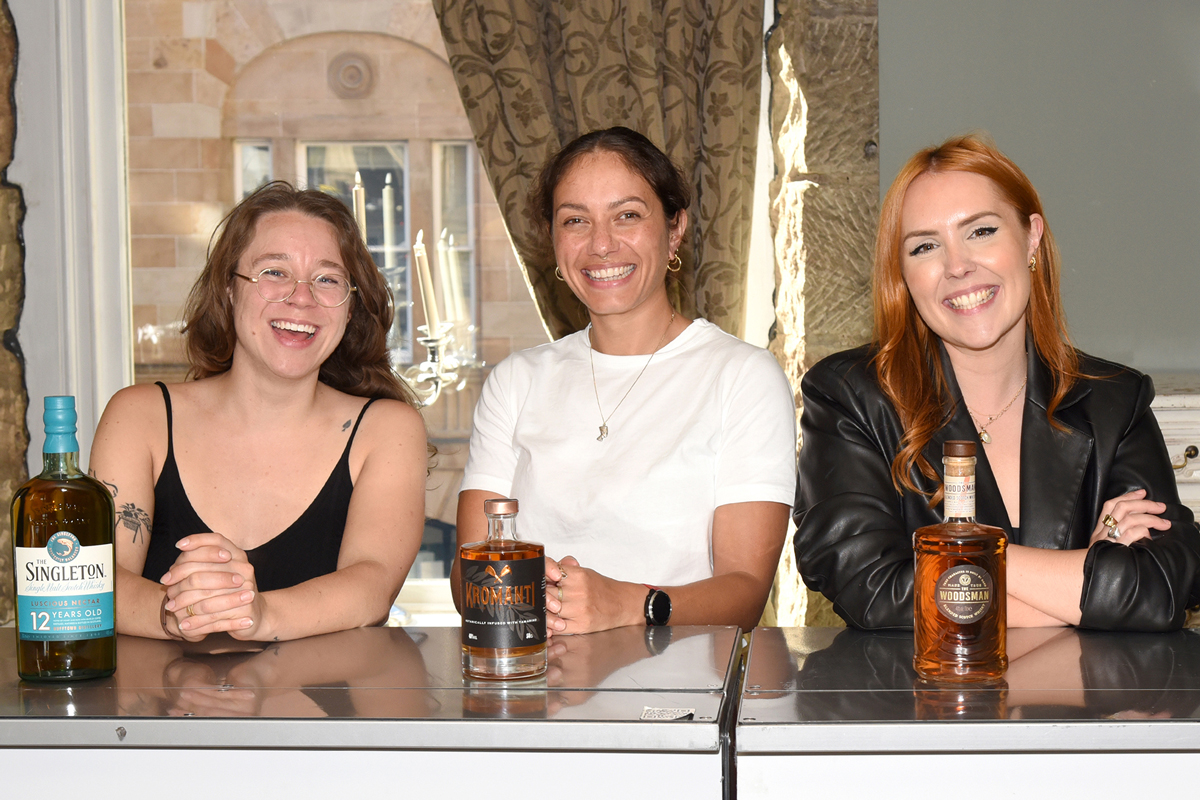
First SLTN event encourages debate on how the sector can become more diverse
Making whisky more welcoming to a broader range of people was top of the agenda when SLTN held its first In Conversation With SLTN event last month.
The event, at Glasgow’s Citation, saw bar operators and staff come together with representatives from the drinks industry to hear from top speakers on the subject of inclusivity, before getting stuck in themselves with insights and opinions on how brands and venues can be more inclusive.
Sponsored by Master of Malt Trade and The Drink Cabinet, the event was addressed by Charlotte Barker, malts ambassador for GB at Diageo, Kirsten Blackburn, head of marketing at The Borders Distillery, and Dani David, co-founder of rum brand Kromanti.
Welcoming the audience, Josh McCartney, marketing manager at Master of Malt Trade, said the subject of inclusivity ‘is something we are very passionate about’.
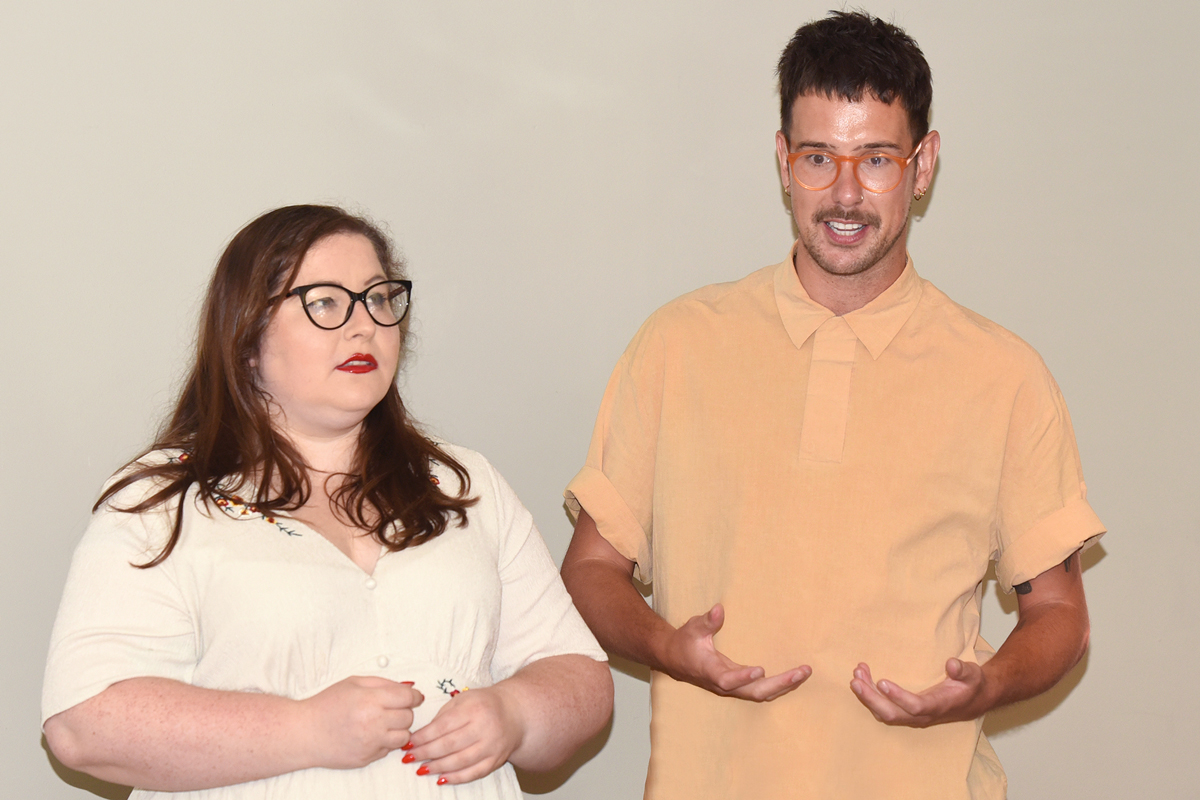

And Drink Cabinet director Bea Bradsell said the conversation around inclusivity in whisky is ‘really near and dear to my heart’.
“Especially with recent reports that 81% of women working in the industry are still being asked ‘do you even like whisky’ when they’re at work, doing their jobs, selling things, clearly with good knowledge and interest,” she said.
“It’s still a conversation that needs to be had.”
That type of discrimination was tackled directly by Barker, who highlighted recent research from the Our Whisky Foundation, which found that the majority of women working in whisky are regularly challenged on their whisky knowledge among other, even worse, transgressions.
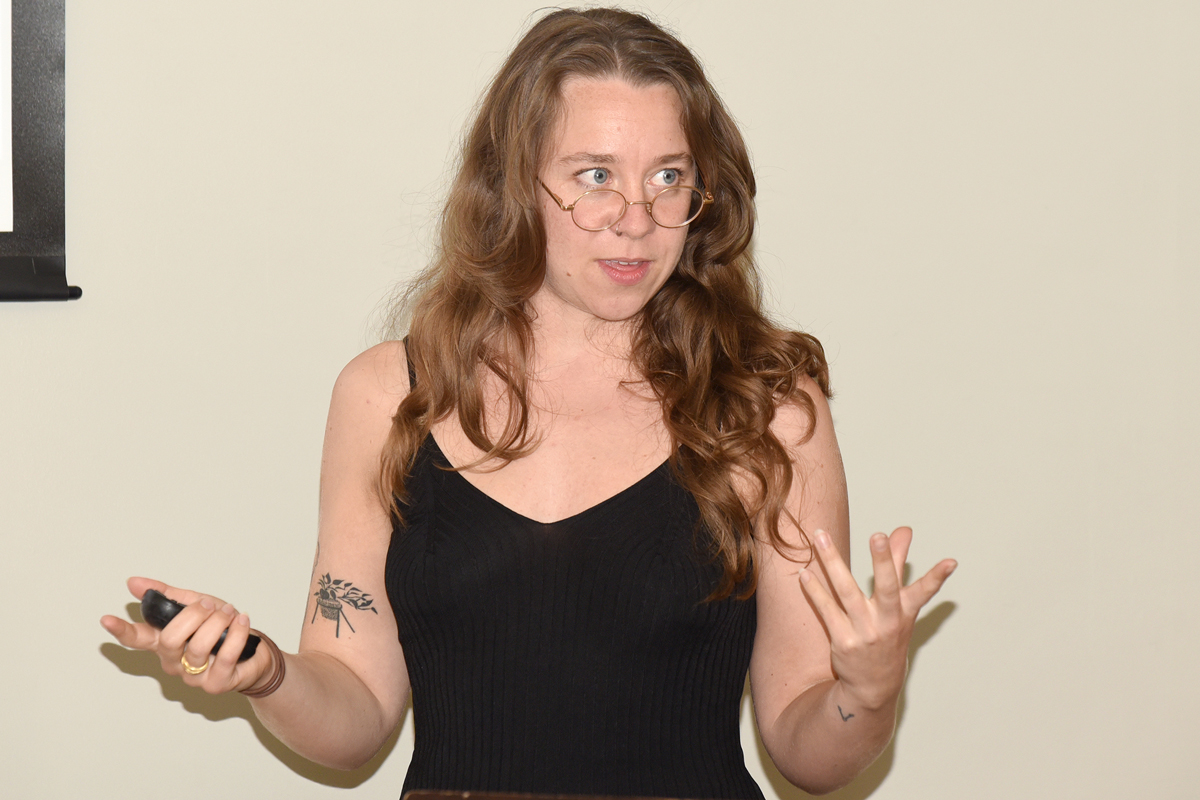

Barker, who has worked in the industry for years and hosted hundreds of whisky tastings, said she is constantly having to be ‘on guard’ at events.
“But it’s more than that,” she said. “We’re not just talking about incidences of being questioned or being heckled. That happens a stupid amount. But we’re also talking about harassment and levels of assault, which is frankly something nobody should ever have to experience in their life.”
Blackburn then took up the baton, addressing the related subject of attracting younger staff into the whisky industry.
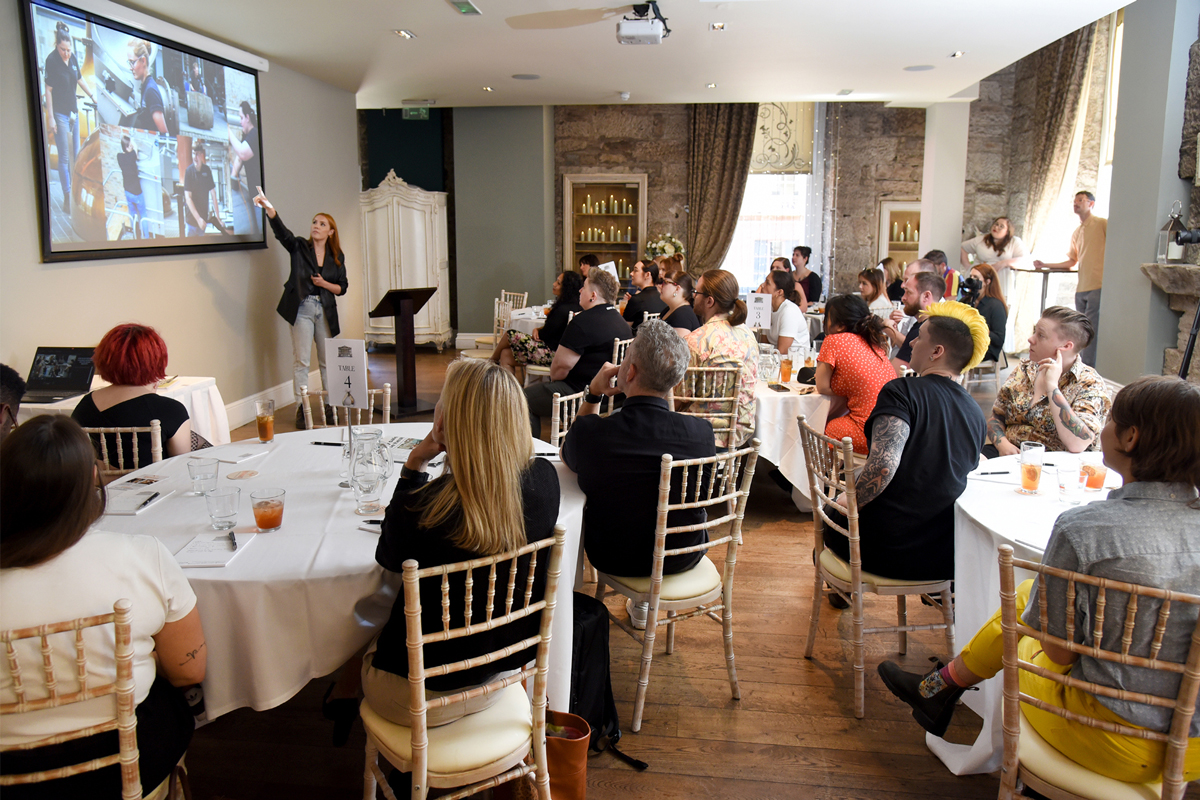

With a team of young people, The Borders Distillery has, said Blackburn, recruited on the basis of ‘attitude and aptitude’ rather than experience.
“Skills can be learned and skills can be passed on,” she said. “But actually what you want is a team of people who are really passionate and inquisitive and curious about what they do.”
Blackburn reckoned there needs to be a change in how alcohol is talked about in Scotland in order to make it a more attractive place to work for young people.
She said: “I’m not going to get into politics about how Scotland chooses to advertise or to speak about alcohol to a younger audience, but I do find it alarming that we treat alcohol as this sometimes shameful and secret industry that shouldn’t be explored and celebrated, and there’s only one bad outcome that comes from drinking alcohol.
“And actually what we’re then reinforcing to younger minds is that alcohol is something that should be hidden or that can only be done in certain situations or enjoyed in certain contexts. Whereas I’m pretty sure that if you go to France on any given day, the 14 year old is having dinner with his family with a glass of wine in his hand.
“This attitude we have towards alcohol, I think we have a lot to do as an industry to address that.”
And she added that more could be done to highlight the range of careers available in whisky, from malting and distilling through to sales, marketing, events and graphic design.
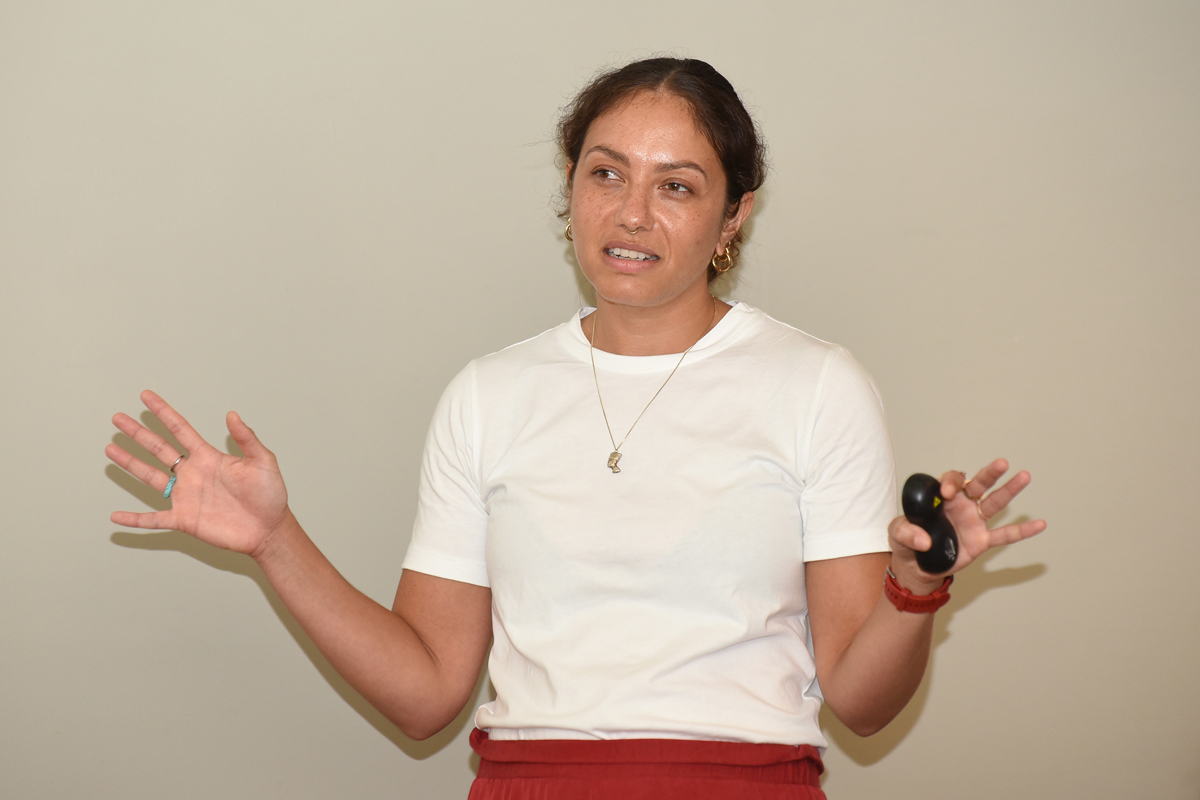

Addressing bars, David argued that even the brands they are choosing to work with and stock can help to make them more inclusive.
“We know that hospitality is super diverse,” she said. “We’ve got people from all walks of life behind the bars. How represented is that on the back-bar? And I think that’s a question that we all need to ask ourselves when we work in bars.”
She also took the opportunity to call out brands that misrepresent their brand stories in order to appeal to different groups of consumers.
She said: “How authentic is the story that you’re selling? I know that there are a lot of stories around that perhaps aren’t directly linked to the brand owner. And one of the things there’s a lot of frustration around, is that some brands are taking certain aspects of history, re-packaging it and then selling it back to the community. So I think there’s a question that we all need to be asking: how authentically is that brand representing that community?
“I think there are a lot of stories that aren’t being told, and I think that spans across the entire drinks industry.
“Finding those stories is a key part to improving diversity in the industry.”
